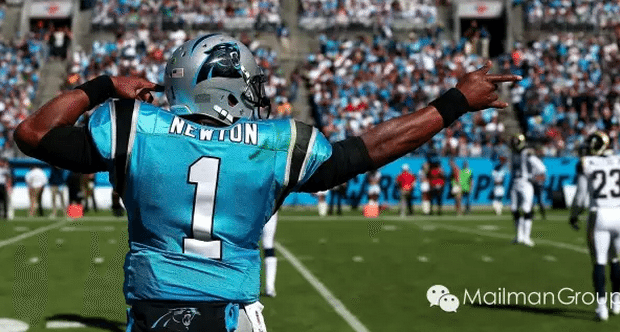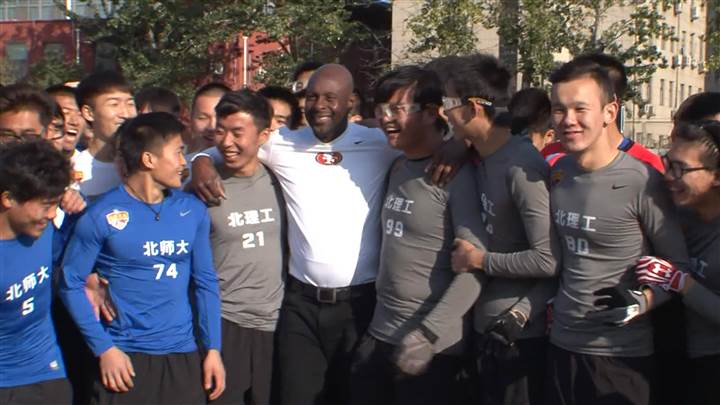Are US Sports The Next Big Chinese Import? PT 1: Online/Offline

The term “Made in China” has worked its way into common English pop culture vernacular as an accurate description of one of the world’s largest manufacturing hubs.
The phone that’s buzzing on my desk? Made in China.
This keyboard I’m typing on? Made in China.
The shirt I’m wearing? Well, that was made in Bangladesh but you get the point.
On the flip side of unparalleled exports in physical goods is how China is aggressively making moves to import sporting cultures from the western world, especially those from America. From the digital sphere to quality offline events and improved broadcasting services the UFC, NFL, MLB, and NHL are all striving to improve their footprint in China and become the next established foreign sport behind the NBA and European football.
The question is, which sport will be the next to make it truly big in China? In the first part of this two-part series, we take a look at what the aforementioned organizations are doing in the fields of digital strategy and offline activation to capture the Chinese audience.
DIGITAL
Social media is the strongest tool for a sports organisation to grow their brand in China. Chinese netizens have more trust on social media than other news sources and there are currently 659 million social media users.
The potential of this market can be seen by how the 4 American sports organizations mentioned above are online to some degree. Here’s a quick look at their Weibo numbers:
UFC: 146,000 followers but a massive 124 average engagement
NFL: 379,000 followers with and average engagement of 48
MLB: 12,000 followers but only 17 engagement
NHL: 3,000 followers (inactive)
There are several clear takeaways with these numbers. The NFL has the largest potential fan base; however, it’s less active, which may be due to an elongated offseason compared to the UFC, which sports a year round schedule. The difference in schedule could be a reason as to why the UFC has a more vocal fan base despite having less followers. It’s also interesting to note how UFC President Dana White and top women’s fighter Ronda Rousey are both on Weibo, another separating factor between them and the rest of the league. On another note, to be frank, it seems as though the MLB and NHL are oblivious to the importance of a social media presence in China and how that correlates to a sports brand’s success.
OFFLINE
Offline strategy is definitely the peanut butter to a brand’s digital jelly. While, it’s true that most Chinese netizens are online on social media, one quick look out the window will show you…yup, they’re outside as well. In all seriousness though, the brands and sports organizations that are able to put together quality immersive offline experiences, such as the NBA having exhibition games in China, are ultimately going to be the brands that end up winning in the long run.
UFC
They’ve held three events in Macau over the last 3 years (2012, 2014, 2014) with the hashtag for the event (#UFCMacau) reaching a massive 8.6 million reads online in China. While they’ve yet to break into mainland for a fight, they did hod The Ultimate Fighter television show in China to go in conjunction with regular viewing events for UFC events that feature Chinese fighters.
NFL
The 2014-15 season was a big year for the NFL’s offline activation in China. The NFL on Tour truck ventured more than 25,000 kilometers, making 19 stops in nine cities over three months. On top of this the NFL China University Flag Football League is now in its sixth year while NFL Home Field continued for the second year, visiting three cities over 10 weekends.
By just looking at recent history, it clearly seems that the NFL is investing the most in offline experiences, giving the Chinese a hands on experience to a relatively new and foreign sport.
MLB
The MLB definitely has an interesting position in the Chinese market place. The fashion brand is high popular with Yankees snapbacks easily spotted wherever you go. The MLB has also opened 3 development centres in the country with the first development center debuting in 2009 at Wuxi’s Dongbeitang School and additional centres opening in Nanjing and in Changzhou. Bob DuPuy, President and Chief Operating Officer at the time of launch said “The establishment of the MLB Development Center demonstrates Major League Baseball’s commitment to expand the sport in China and to aid elite players in reaching their full competitive potential.”
NHL
It’s safe to say that the NHL’s efforts are a half-step behind the other sports organizations; although, the potential does seem promising. Currently, there are plans to build over 400 more full-sized rinks in China by2020. Also, much in the fashion the NHL has taken an interested in developing Chinese talent, with both the Toronto Maple Leafs and Vancouver Canucks running hockey camps in Beijing and Shanghai. A further testament to this is how today there are 1,700 children involved in minor hockey, which is a significant improvement to the measly 100 involved just 5 years ago.
But what does all of this mean?
Much like the analysis of online strategy, several things become clearly apparent when looking at offline strategies.
The NHL is actually in a very strong position, which in part supplemented by their successful bid of the Winter Olympics in 2022. Given China’s noted competitive nature in sports on the global stage, it’s safe to say that China will continue to invest in Ice Hockey in their pursuit for gold medals.
The UFC can also build on the successful Macau events and host their first mainland event to cement their position. Given their wide success on social media and video streaming platforms, this could be very close to a sure thing, from a fan interest perspective that is.
The NFL continues to strike gold with events surrounding the Super Bowl and will most likely continue to build on grassroots participation to build a solid and loyal fanbase. Whereas, the MLB still needs to step beyond simple fashion interests and developing talent in order to get the casual Chinese netizens excited about the actual game of baseball if they hope to be the next major American sport to succeed in China.
Read the original article here.
Reprinted with the permission of the Mailman Group.

